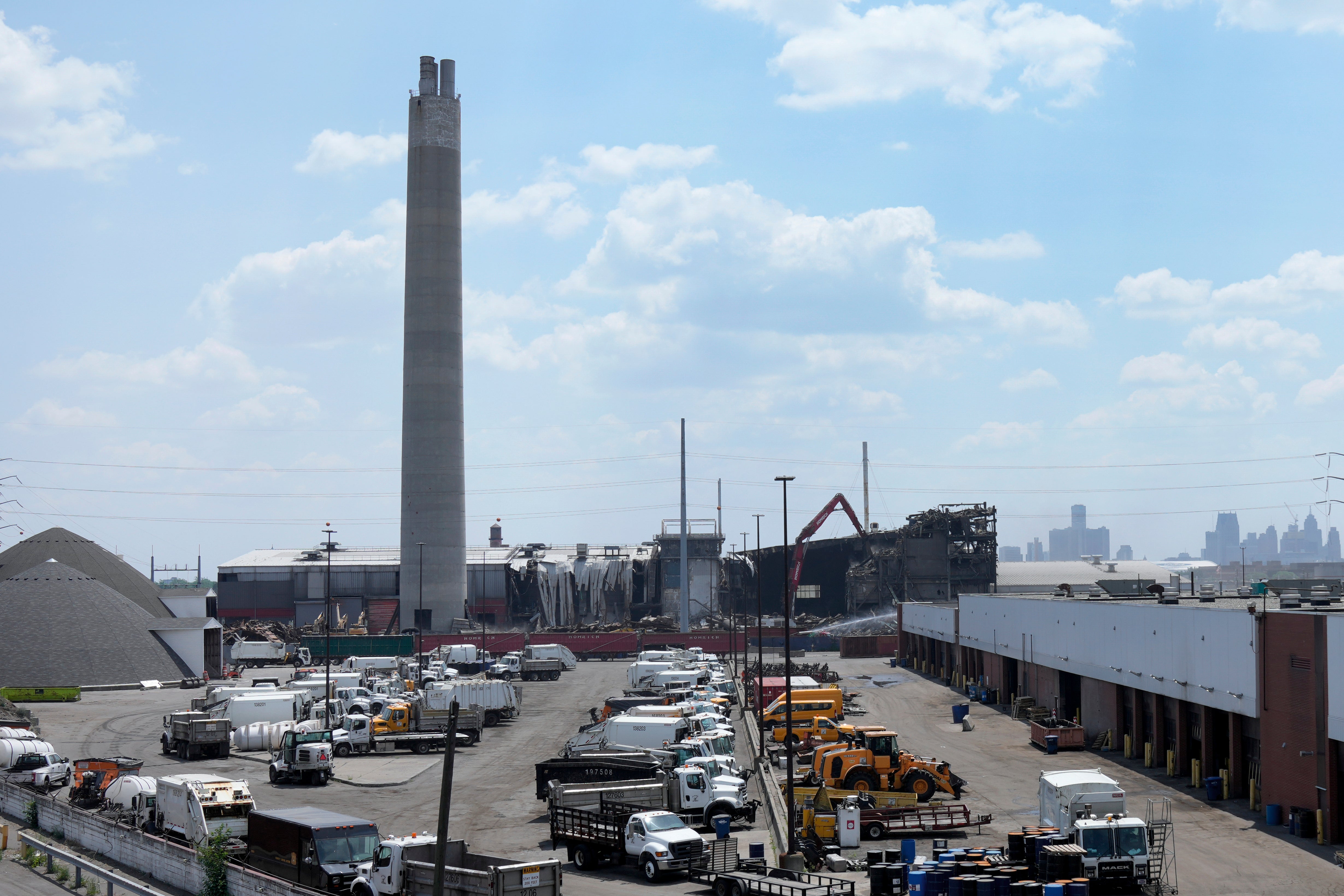Smokestack implosion to bring decades of Detroit trash incinerator stink to an end
The looming smokestack of a shuttered trash incinerator whose stench sickened and angered Detroit residents for decades is coming down in a controlled implosion

The looming smokestack of a shuttered trash incinerator whose stench sickened and angered Detroit residents for decades is coming down in a controlled implosion scheduled for Sunday morning.
The plan to reduce the smokestack to rubble is almost the final phase in the facility's yearlong demolition, which should be completed by July, according to the city.
The facility has stood near the interchange of Interstates 94 and 75 for more than 30 years, just a few miles northeast of downtown Detroit. Before closing in 2021, fumes and the rank odor of burning trash could be smelled for miles, but were strongest for residents of nearby streets, raising concerns about pollution and the impact on residents' health.
The approximately 330-foot-tall (100-meter-tall) incinerator operated by Detroit Renewable Energy opened in 1989. Up to 5,000 tons (4,535 metric tons) of trash were burned there per day.
“The presence of this incinerator has been a real pain point for this community because it was another example of a health hazard being placed in a lower-income community of color,” Mayor Mike Duggan said last year. ”We worked hard behind the scenes to get the incinerator shut down, and now residents of this neighborhood will finally be able to say goodbye to it forever."
Detroit household trash is now trucked to landfills outside the city limits.
The city has gone door-to-door to homes outside the impact area, alerting residents about the implosion and urging them to keep windows closed as a precaution. Explosives will cause the smokestack to fall onto the incinerator property, away from the closest residential area, the city said.
Nearby streets will be closed and water misting machines will be used to wet the property before, during and after the implosion to help keep dust contained to the site. Workers will check the air quality and conduct vibration monitoring before and after the implosion.
Similar implosions have not occurred without problems.
A blast of air and dust from the June 2 implosion of two smokestacks at a shuttered coal-fired power plant outside Pittsburgh felled power poles and damaged nearby homes. The air blast broke windows and blew dust from the fallen stacks into homes. The surge also felled trees and several power poles and their wires, leading to a power surge that damaged electrical appliances in homes.
The demolition of a former coal plant in 2020 pushed a massive cloud of dust into a Chicago neighborhood.
Bookmark popover
Removed from bookmarks